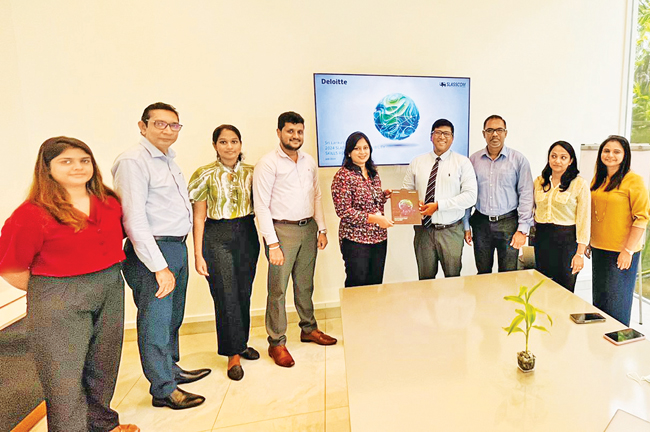SLASSCOM, in collaboration with Deloitte, recently conducted an employability skills survey aimed at assessing the current skills landscape and evaluating the readiness of candidates from Sri Lankan universities and higher educational institutes for the IT industry. The survey included over 37 IT companies and over 80,000 IT professionals with more than 15 years of industry experience.
This year’s survey focused exclusively on IT/IS companies, with IT product company representation reduced to 19%. All surveyed companies in 2024 had more than 50 employees, indicating a shift away from start-up participation. The survey aimed to collect detailed data on the current state of employability skills within Sri Lanka’s IT market and identify key trends and challenges in the industry. It sought to understand the specific skill demands of employers and the perspectives of IT professionals regarding their skills and job prospects.
The survey highlighted that emerging technologies like artificial intelligence (AI), data analytics, cloud computing, and cybersecurity are top priorities for organizations. Technologies such as process automation, big data platforms, and machine learning are seeing growing demand, with frameworks and libraries such as Automation Anywhere, React, .NET (5+), and Spring Framework becoming increasingly important.
Software engineering continues to be a top profession, though software quality assurance (SQA) has surged from fifth to second place, and system/network engineering has dropped out of the top five. The demand for software engineering has increased from 14% in 2021 to 30% in 2024, with emerging needs for QA automation and DevOps professionals. There has been a decline in demand for project management and quality assurance roles, with QA automation no longer among the top professions.
The survey indicated a rise in graduate hires, although companies are struggling to fill these positions due to a limited talent pool and mismatched salary expectations. There is a clear shift towards valuing practical and applied skills over theoretical knowledge, with teamwork becoming crucial to meet industry demands. Additionally, 41% of responding companies are investing between Rs. 100,000 and Rs. 250,000 per graduate hire, reflecting a strong commitment to developing new talent.
The survey also highlights current trends in tools and technologies, including the prominence of cloud platforms, frameworks, and AI development tools, while noting that software engineering, AI, data science, and machine learning remain distinct tracks.

